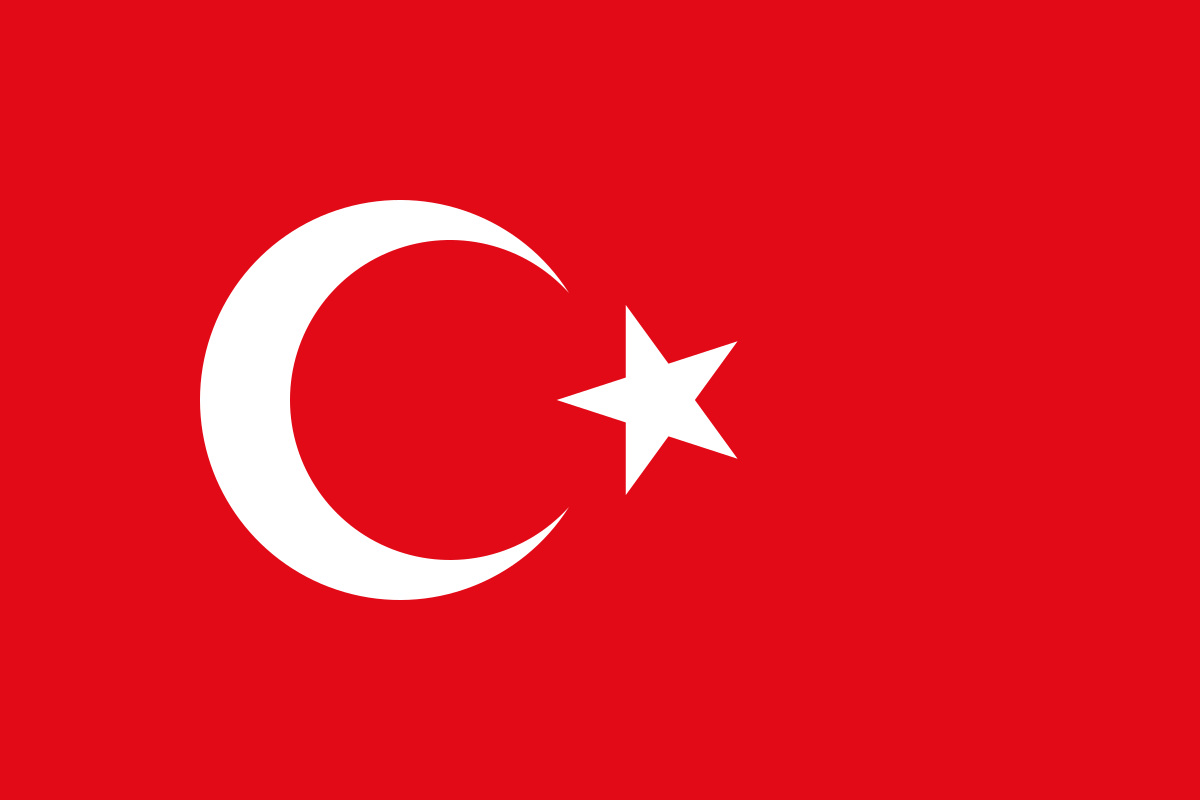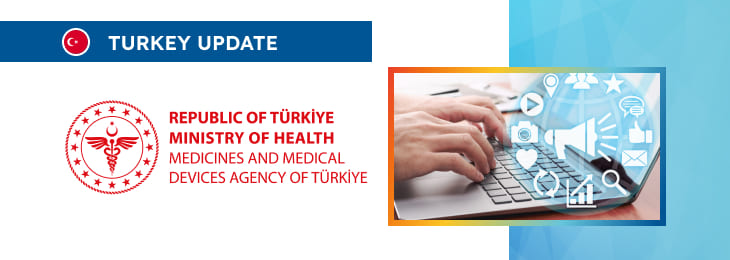The new article describes in detail the approach to be applied with respect to information used to promote medical devices allowed for marketing and use in the country.

Table of content
The Turkish regulating authority in the sphere of medical devices has published a guidance document dedicated to the implementation of the regulation on the sale, advertising, and promotion of medical devices. The document provides an overview of the applicable regulatory requirements, as well as additional clarifications and recommendations to be taken into consideration by medical device manufacturers and other parties involved in order to ensure compliance.
Introduction
The Turkish regulating authority in the sphere of medical devices has published a guidance document dedicated to the implementation of the regulation on the sale, advertising, and promotion of medical devices. The document provides an overview of the applicable regulatory requirements, as well as additional clarifications and recommendations to be taken into consideration by medical device manufacturers and other parties involved in order to ensure compliance.
At the same time, provisions of the guidance are non-binding in their legal nature, nor are they intended to introduce new rules or impose new obligations. The authority also reserves the right to make changes to the guidance and recommendations provided therein, should such changes be reasonably necessary to reflect corresponding amendments to the underlying legislation.
In particular, the document provides detailed guidelines and regulations governing the dissemination of information, promotion, advertising, market launch announcements, and online sales related to medical devices. The rules ensure transparency, professionalism, and adherence to ethical standards in all communication and sales activities associated with medical devices.

Information
The applicable regulation specifies the guidelines for providing information about medical devices. Information activities must adhere to strict limitations and are only allowed under specific conditions.
The document provides a few of them as examples:
- Sales Center as Source: Information related to medical devices can only be provided by the sales center where the device is sold. The information activity must not cross into marketing or sales unless it meets the specific conditions outlined.
- Website Naming: The domain name for the sales center’s website should either reflect the center’s name or be a unique domain obtained solely for medical device-related information.
- Social Media: If a social media account includes links to pages where medical devices are sold, this activity is classified as sales rather than informational.
- Content Limitations: Only information contained in the technical documentation of the medical device is permitted. Pricing information is strictly excluded from these activities.
- Exclusion of Non-Technical Content: Surveys, studies, and any information not included in the official technical documentation are not allowed to be shared under information activities.
Promotion
Article 13 regulates promotional activities to ensure accuracy and integrity in the dissemination of information regarding medical devices.
Promotional activities must follow the guidelines below:
- Authorized Entities Only: Only authorized sales centers can carry out promotional activities, excluding those organized by scientific organizations like congresses or symposiums.
- No False Information: Promotional material must not contain false, misleading, or exaggerated information. All promotional content must strictly align with the technical documentation of the device, including labels and user manuals.
- Target Audience: Promotion is restricted to healthcare professionals and technical staff within medical institutions. Promotional materials like brochures, booklets, or demo devices can only be given to these professionals.
- Exclusions: Internal training activities within a sales center are not considered promotional activities. Similarly, training conducted by healthcare professionals for sales personnel does not fall under the scope of promotion.
- Promotional Materials: Various promotional materials, such as printed booklets, brochures, visual media, demo devices, and free samples, are allowed, provided they do not exceed a certain value threshold (2.5% of the current monthly gross minimum wage). These materials must also be registered in the Institution’s information management system.
- Scientific and Educational Activities: Scientific and educational activities can be part of promotional efforts but must comply with the guidelines outlined in the regulation.
Market Offering Announcement
Article 14 outlines the process for announcing the market launch of a medical device:
- Permission Required: A manufacturer or importer wishing to announce the market launch of a medical device must obtain permission from the relevant agency. The announcement must adhere to the specific format approved by the agency.
- Validity and Media Compliance: Once granted, the permission for a market launch announcement is valid for publication in print media once on the same day or in periodicals within 30 days.
- Formatting Guidelines: Announcements must not exceed 1/8 of a full newspaper page (A5 size) and must carry the title “Medical Device Market Launch Announcement”. The content must be consistent with the device’s technical documents, such as labels, user manuals, and certificates. Slogans or promotional expressions are prohibited.
- Documentation for Application: Applications for permission to announce a medical device launch must include a petition, a copy of the announcement, and a letter verifying that both the device and the company are registered in the Institution’s information system.
- Publication Limitations: Announcements can only appear in printed daily or periodical publications and cannot be made online, even if the publication has a digital version.
- Application Fee: The application for a market launch announcement must include a fee, which must be paid according to the Institution’s fee structure.
Advertising
The document also provides additional details regarding the rules to be followed when advertising medical devices. In particular, Article 15 regulates advertising activities related to medical devices, ensuring ethical and responsible marketing practices.
- Sales Centers as Advertisers: Advertising is only permitted for sales centers, excluding certain devices listed in Annex 3 of the Regulation. Advertisements can only be made in online environments where the devices are sold, and advertisements must clearly connect to the sales center’s official website.
- Prohibited Practices: Advertisements through social media accounts or websites owned by other persons or institutions, as well as pop-ups or banners, are prohibited.
- Content Restrictions: Advertisements must avoid providing price information that could influence consumer purchasing decisions. Any studies or surveys outside the device’s technical documentation fall under the scope of advertising and are restricted.
- Consumer Protection: Misleading, exaggerated, or unsubstantiated information is prohibited. Advertisements that exploit consumer inexperience or harm public health, especially targeting vulnerable groups like children, the elderly, or the disabled, are strictly forbidden.
- Covert Advertising: Articles, news pieces, or other media content that implicitly promote a product without clearly being labeled as an advertisement are considered covert advertising, which is prohibited.
- Privacy Protection: Advertisements must not violate personal privacy or disclose personal data.
- Regulation Compliance: Advertisements related to sales centers must comply with the Medical Device Sales, Advertisement, and Promotion Regulation, as well as other relevant regulations for specific centers, such as hearing aids or dental prosthesis centers.
- Interior Brochures: Brochures, posters, or other visual materials placed inside sales centers are not considered advertising. However, if they are intended for consumers outside the center, such as being placed in display windows, they are subject to advertising regulations.
Online Sales
As explained in the document, Article 16 focuses on the regulations for online sales of medical devices:
- Authorization Requirement: Only real or legal entities authorized under the Regulation can sell medical devices online. Unauthorized entities are prohibited from selling devices.
- Registration in the ÜTS: Sales centers must ensure that the devices sold online are registered in the Institution’s information management system (ÜTS). Any sales of unregistered devices are prohibited.
- Prohibited Sales Channels: Medical devices cannot be sold through newspapers, radio, television, or telephone sales, nor through direct or indirect sales methods.
- Authorized Sales: Only authorized sales centers can sell devices online through their own websites or intermediary service providers. Sales centers must be authorized under legislation, and intermediary providers must ensure compliance.
- Social Media Sales: If a sales center uses social media, it must link directly to the official website where the devices are sold. Sales through third-party social media accounts or unrelated websites are prohibited.
- Exemptions: Certain medical devices listed in Annex 3 can be sold without requiring a sales center authorization.
- Special Restrictions: Medical devices that are not allowed to be sold to consumers online can only be sold to healthcare professionals in controlled environments inaccessible to consumers.
- Optician Products: It is prohibited to sell prescription lenses and frames over the Internet, even for opticians.
Conclusion
In summary, the Medical Device Sales, Advertisement, and Promotion Regulation provides a detailed framework for information sharing, promotion, advertising, market launch announcements, and online sales. These rules ensure that all activities are conducted in an ethical, responsible, and regulated manner, protecting both consumers and healthcare professionals while ensuring transparency in the medical device industry.
How Can RegDesk Help?
RegDesk is an AI-powered Regulatory Information Management System (RIMS) designed to simplify global compliance for medical device companies. With regulatory intelligence covering 120+ markets, RegDesk helps you prepare and publish global submissions, manage standards, conduct impact assessments, and stay ahead of regulatory changes all from a single, centralized platform. Expanding into new markets has never been easier.

